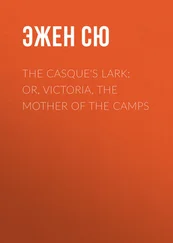Willa Cather - The Song of the Lark
Здесь есть возможность читать онлайн «Willa Cather - The Song of the Lark» — ознакомительный отрывок электронной книги совершенно бесплатно, а после прочтения отрывка купить полную версию. В некоторых случаях можно слушать аудио, скачать через торрент в формате fb2 и присутствует краткое содержание. Жанр: unrecognised, на английском языке. Описание произведения, (предисловие) а так же отзывы посетителей доступны на портале библиотеки ЛибКат.
- Название:The Song of the Lark
- Автор:
- Жанр:
- Год:неизвестен
- ISBN:нет данных
- Рейтинг книги:5 / 5. Голосов: 1
-
Избранное:Добавить в избранное
- Отзывы:
-
Ваша оценка:
- 100
- 1
- 2
- 3
- 4
- 5
The Song of the Lark: краткое содержание, описание и аннотация
Предлагаем к чтению аннотацию, описание, краткое содержание или предисловие (зависит от того, что написал сам автор книги «The Song of the Lark»). Если вы не нашли необходимую информацию о книге — напишите в комментариях, мы постараемся отыскать её.
libreka classics – These are classics of literary history, reissued and made available to a wide audience.
Immerse yourself in well-known and popular titles!
The Song of the Lark — читать онлайн ознакомительный отрывок
Ниже представлен текст книги, разбитый по страницам. Система сохранения места последней прочитанной страницы, позволяет с удобством читать онлайн бесплатно книгу «The Song of the Lark», без необходимости каждый раз заново искать на чём Вы остановились. Поставьте закладку, и сможете в любой момент перейти на страницу, на которой закончили чтение.
Интервал:
Закладка:
The acquisition of this room was the beginning of a new era in Thea's life. It was one of the most important things that ever happened to her. Hitherto, except in summer, when she could be out of doors, she had lived in constant turmoil; the family, the day school, the Sunday-School. The clamor about her drowned the voice within herself. In the end of the wing, separated from the other upstairs sleeping-rooms by a long, cold, unfinished lumber room, her mind worked better. She thought things out more clearly. Pleasant plans and ideas occurred to her which had never come before. She had certain thoughts which were like companions, ideas which were like older and wiser friends. She left them there in the morning, when she finished dressing in the cold, and at night, when she came up with her lantern and shut the door after a busy day, she found them awaiting her. There was no possible way of heating the room, but that was fortunate, for otherwise it would have been occupied by one of her older brothers.
From the time when she moved up into the wing, Thea began to live a double life. During the day, when the hours were full of tasks, she was one of the Kronborg children, but at night she was a different person. On Friday and Saturday nights she always read for a long while after she was in bed. She had no clock, and there was no one to nag her.
Ray Kennedy, on his way from the depot to his boardinghouse, often looked up and saw Thea's light burning when the rest of the house was dark, and felt cheered as by a friendly greeting. He was a faithful soul, and many disappointments had not changed his nature. He was still, at heart, the same boy who, when he was sixteen, had settled down to freeze with his sheep in a Wyoming blizzard, and had been rescued only to play the losing game of fidelity to other charges.
Ray had no very clear idea of what might be going on in Thea's head, but he knew that something was. He used to remark to Spanish Johnny, "That girl is developing something fine." Thea was patient with Ray, even in regard to the liberties he took with her name. Outside the family, every one in Moonstone, except Wunsch and Dr. Archie, called her "Thee-a," but this seemed cold and distant to Ray, so he called her "Thee." Once, in a moment of exasperation, Thea asked him why he did this, and he explained that he once had a chum, Theodore, whose name was always abbreviated thus, and that since he was killed down on the Santa Fe, it seemed natural to call somebody "Thee." Thea sighed and submitted. She was always helpless before homely sentiment and usually changed the subject.
It was the custom for each of the different Sunday Schools in Moonstone to give a concert on Christmas Eve. But this year all the churches were to unite and give, as was announced from the pulpits, "a semi-sacred concert of picked talent" at the opera house. The Moonstone Orchestra, under the direction of Professor Wunsch, was to play, and the most talented members of each Sunday School were to take part in the programme. Thea was put down by the committee "for instrumental." This made her indignant, for the vocal numbers were always more popular. Thea went to the president of the committee and demanded hotly if her rival, Lily Fisher, were going to sing. The president was a big, florid, powdered woman, a fierce W.C.T.U. worker, one of Thea's natural enemies. Her name was Johnson; her husband kept the livery stable, and she was called Mrs. Livery Johnson, to distinguish her from other families of the same surname. Mrs. Johnson was a prominent Baptist, and Lily Fisher was the Baptist prodigy. There was a not very Christian rivalry between the Baptist Church and Mr. Kronborg's church.
When Thea asked Mrs. Johnson whether her rival was to be allowed to sing, Mrs. Johnson, with an eagerness which told how she had waited for this moment, replied that "Lily was going to recite to be obliging, and to give other children a chance to sing." As she delivered this thrust, her eyes glittered more than the Ancient Mariner's, Thea thought. Mrs. Johnson disapproved of the way in which Thea was being brought up, of a child whose chosen associates were Mexicans and sinners, and who was, as she pointedly put it, "bold with men." She so enjoyed an opportunity to rebuke Thea, that, tightly corseted as she was, she could scarcely control her breathing, and her lace and her gold watch chain rose and fell "with short, uneasy motion." Frowning, Thea turned away and walked slowly homeward. She suspected guile. Lily Fisher was the most stuck-up doll in the world, and it was certainly not like her to recite to be obliging. Nobody who could sing ever recited, because the warmest applause always went to the singers.
However, when the programme was printed in the Moonstone GLEAM, there it was: "Instrumental solo, Thea Kronborg. Recitation, Lily Fisher."
Because his orchestra was to play for the concert, Mr. Wunsch imagined that he had been put in charge of the music, and he became arrogant. He insisted that Thea should play a "Ballade" by Reinecke. When Thea consulted her mother, Mrs. Kronborg agreed with her that the "Ballade" would "never take" with a Moonstone audience. She advised Thea to play "something with variations," or, at least, "The Invitation to the Dance."
"It makes no matter what they like," Wunsch replied to Thea's entreaties. "It is time already that they learn something."
Thea's fighting powers had been impaired by an ulcerated tooth and consequent loss of sleep, so she gave in. She finally had the molar pulled, though it was a second tooth and should have been saved. The dentist was a clumsy, ignorant country boy, and Mr. Kronborg would not hear of Dr. Archie's taking Thea to a dentist in Denver, though Ray Kennedy said he could get a pass for her. What with the pain of the tooth, and family discussions about it, with trying to make Christmas presents and to keep up her school work and practicing, and giving lessons on Saturdays, Thea was fairly worn out.
On Christmas Eve she was nervous and excited. It was the first time she had ever played in the opera house, and she had never before had to face so many people. Wunsch would not let her play with her notes, and she was afraid of forgetting. Before the concert began, all the participants had to assemble on the stage and sit there to be looked at. Thea wore her white summer dress and a blue sash, but Lily Fisher had a new pink silk, trimmed with white swansdown.
The hall was packed. It seemed as if every one in Moonstone was there, even Mrs. Kohler, in her hood, and old Fritz. The seats were wooden kitchen chairs, numbered, and nailed to long planks which held them together in rows. As the floor was not raised, the chairs were all on the same level. The more interested persons in the audience peered over the heads of the people in front of them to get a good view of the stage. From the platform Thea picked out many friendly faces. There was Dr. Archie, who never went to church entertainments; there was the friendly jeweler who ordered her music for her,—he sold accordions and guitars as well as watches,—and the druggist who often lent her books, and her favorite teacher from the school. There was Ray Kennedy, with a party of freshly barbered railroad men he had brought along with him. There was Mrs. Kronborg with all the children, even Thor, who had been brought out in a new white plush coat. At the back of the hall sat a little group of Mexicans, and among them Thea caught the gleam of Spanish Johnny's white teeth, and of Mrs. Tellamantez's lustrous, smoothly coiled black hair.
After the orchestra played "Selections from Erminie," and the Baptist preacher made a long prayer, Tillie Kronborg came on with a highly colored recitation, "The Polish Boy." When it was over every one breathed more freely. No committee had the courage to leave Tillie off a programme. She was accepted as a trying feature of every entertainment. The Progressive Euchre Club was the only social organization in the town that entirely escaped Tillie. After Tillie sat down, the Ladies' Quartette sang, "Beloved, it is Night," and then it was Thea's turn.
Читать дальшеИнтервал:
Закладка:
Похожие книги на «The Song of the Lark»
Представляем Вашему вниманию похожие книги на «The Song of the Lark» списком для выбора. Мы отобрали схожую по названию и смыслу литературу в надежде предоставить читателям больше вариантов отыскать новые, интересные, ещё непрочитанные произведения.
Обсуждение, отзывы о книге «The Song of the Lark» и просто собственные мнения читателей. Оставьте ваши комментарии, напишите, что Вы думаете о произведении, его смысле или главных героях. Укажите что конкретно понравилось, а что нет, и почему Вы так считаете.












